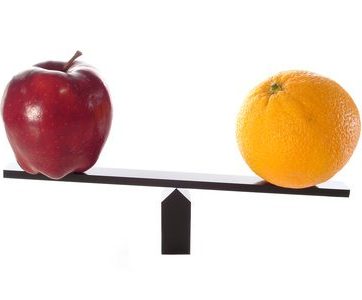
Recognizing the Quiet Power of Your CRM Data
by Julie Amos, Chief Strategy Officer and Chris Fritsch, Client Success Consultant
Marketing departments today often spend a great deal of their time focusing on things that involve strategies and planning. To support these critical activities, they have built up and aligned key staff and resources. This is completely understandable given the pressure they are under to deliver results and value. While the pressure has always been significant, in recent years, with competition at unimaginable levels, it has intensified significantly.
However, it may actually surprise many marketers to discover that one of the most important tools to help their firms deliver value and develop business isn’t a strategic or planning initiative.

Recognizing the Quiet Power of Your CRM Data
by Julie Amos, Chief Strategy Officer and Chris Fritsch, Client Success Consultant

Marketing departments today often spend a great deal of their time focusing on things that involve strategies and planning. To support these critical activities, they have built up and aligned key staff and resources. This is completely understandable given the pressure they are under to deliver results and value. While the pressure has always been significant, in recent years, with competition at unimaginable levels, it has intensified significantly.
However, it may actually surprise many marketers to discover that one of the most important tools to help their firms deliver value and develop business isn’t a strategic or planning initiative.

Six Tips to Select the Right CRM System: Evaluate Products and Providers
 Once you have identified a few CRM systems that meet your requirements, you can begin the vetting process to select the right CRM system for your firm.
Once you have identified a few CRM systems that meet your requirements, you can begin the vetting process to select the right CRM system for your firm.
Tip 4: Direct the Demonstrations
It’s essential that the CRM demonstrations allow you to make an informed decision and adequately and accurately compare systems, features and pricing. It’s also important at this phase to again involve your users. CRM systems have a reputation for being notoriously difficult to implement, and the last thing you want is to be responsible for unilaterally selecting a system that then doesn’t meet user expectations.

Six Tips to Select the Right CRM System
– By Chris Fritsch, Client Success Consultant
 Research estimates that up to 70% of CRM systems fail to meet expectations – and a failed CRM implementation can be extremely costly, not just in terms of the financial expense, but also because of the costs in lost time – and credibility. Even more impactful: you don’t often get a second chance at CRM success. This means that it’s critical to select the right CRM system.
Research estimates that up to 70% of CRM systems fail to meet expectations – and a failed CRM implementation can be extremely costly, not just in terms of the financial expense, but also because of the costs in lost time – and credibility. Even more impactful: you don’t often get a second chance at CRM success. This means that it’s critical to select the right CRM system.
The good news is, CRM success is possible. If you simply follow a few critical steps before and during the CRM selection process,

Six Tips to Select the Right CRM System
by Chris Fritsch, Client Success Consultant
 Research estimates that up to 70% of CRM systems fail to meet expectations – and a failed CRM implementation can be extremely costly, not just in terms of the financial expense, but also because of the costs in lost time – and credibility. Even more impactful: you don’t often get a second chance at CRM success. This means that it’s critical to select the right CRM system.
Research estimates that up to 70% of CRM systems fail to meet expectations – and a failed CRM implementation can be extremely costly, not just in terms of the financial expense, but also because of the costs in lost time – and credibility. Even more impactful: you don’t often get a second chance at CRM success. This means that it’s critical to select the right CRM system.
The good news is, CRM success is possible. If you simply follow a few critical steps before and during the CRM selection process,
Dealing with Data Quality Depression
Nothing can be more frustrating than dealing with data quality. But when it comes to CRM success,
there are few things that are more important. While data quality tasks can be a monotonous and
mundane job, left ‘untreated’, a CRM database can rapidly deteriorate into a major headache, causing
end users to doubt and distrust the data – and refuse to use the system.
The First Step
The first step in dealing with data quality depression is admitting you have a problem – or lots of them.
Your end users are out of control.

Building Quality Data – A Sound Structure for Your CRM
The quality of the data in your CRM is essential to maintenance of a strong CRM system. Just like the foundation of a building, when building out your CRM system, a solid data structure is essential. Additionally, once your system structure is complete, its integrity needs to be maintained. Good data quality is the key to getting results and return on the substantial investment in your CRM system. Sound CRM data helps to maximize productivity, enhance communication and expand your client base.
Structural Issues
But building good CRM data quality can also be challenging.

Contact Management 101: 10 Top Tips for Success
– By Christina R. Fritsch, JD, Client Success Consultant
 As the new school year gets underway and students get back to class, it seems like a good time to share a few lessons on contact and relationship management. One group of ‘pupils’ for whom this information can be particularly relevant is new attorneys who are joining a firm for the first time and who are eager to get to the head of the class by focusing on marketing and business development early in their careers.
As the new school year gets underway and students get back to class, it seems like a good time to share a few lessons on contact and relationship management. One group of ‘pupils’ for whom this information can be particularly relevant is new attorneys who are joining a firm for the first time and who are eager to get to the head of the class by focusing on marketing and business development early in their careers.
It may seem to many people that contact management skills should come naturally lawyers,

Contact Management 101: Caring for Your Most Important Assets – Relationships
by Chris Fritsch, Client Success Consultant
 To help communicate the importance of centralized contact management, we have compiled 10 top tips:
To help communicate the importance of centralized contact management, we have compiled 10 top tips:
- Think of contact management as an investment. Contacts are valuable commodities and investing just a little time up front can pay dividends in the future.
- Value your relationships. For attorneys, there is almost no more important contributor to career success.
- Capture complete information. Without key details, you can’t effectively communicate with contacts.
- Update contact information regularly. Up to 30% of contact information changes each year,

Contact Management 101: Understanding the Payoff
by Chris Fritsch, Client Success Consultant

The reasons why attorneys manage their contacts in different ways isn’t important, but the challenge this presents for law firms is. A centralized collection of clean, correct and complete contacts is critical to effective marketing and business
development. Additionally, having contact and relationship information outside the firm’s central systems and security may present additional problems. As a result, many firms may find it important to get attorneys to develop consistent practices for centralized contact management.
So, what is the best way for firms to control the contact conundrum?

Contact Management 101: So Many Contacts, So Many Ways to Manage Them
by Chris Fritsch, Client Success Consultant
 While formal contact management may be foreign to younger lawyers, this isn’t necessarily a generational issue. In fact, we now frequently find that even some of the most experienced lawyers are managing their contacts in different ways. The issue also isn’t caused by inattention or idleness. Actually, there are a number of valid reasons why changes in contact management methodologies have been taking place, such as:
While formal contact management may be foreign to younger lawyers, this isn’t necessarily a generational issue. In fact, we now frequently find that even some of the most experienced lawyers are managing their contacts in different ways. The issue also isn’t caused by inattention or idleness. Actually, there are a number of valid reasons why changes in contact management methodologies have been taking place, such as:
- Attorneys are out of the office more often today, so it’s critical to have contacts on their mobile devices where they can easily access them
- Advances in search technology have made it easy to find contacts anywhere,

Contact Management 101: 10 Top Tips for CRM Success
by Chris Fritsch, Client Success Consultant
 With another school year well underway, it seems like a good time to share a few lessons on contact and relationship management. One group of ‘pupils’ for whom this information can be particularly relevant is new attorneys who are joining a firm for the first time and who are eager to get to the head of the class by focusing on marketing and business development early in their careers.
With another school year well underway, it seems like a good time to share a few lessons on contact and relationship management. One group of ‘pupils’ for whom this information can be particularly relevant is new attorneys who are joining a firm for the first time and who are eager to get to the head of the class by focusing on marketing and business development early in their careers.
It may seem to many people that contact management skills should come naturally to lawyers, for whom relationships are crucial.

The CRM Marathon Finish Line
by Raquel Lewis, CRM Success Consultant and Chris Fritsch, Client Success Consultant
 Once you have come such a long way on your CRM marathon, it’s only natural to start looking for the finish line. You deserve a medal – or at least some sort of reward or recognition for getting this far, if nothing more than some rest and the satisfaction that comes from a job well done.
Once you have come such a long way on your CRM marathon, it’s only natural to start looking for the finish line. You deserve a medal – or at least some sort of reward or recognition for getting this far, if nothing more than some rest and the satisfaction that comes from a job well done.
Unfortunately, the problem with looking for the CRM finish line is your assumption that there actually is one. I hate to be the one to break it to you but the CRM marathon never ends.

The CRM Marathon: Rest Breaks
by Raquel Lewis, CRM Success Consultant and Chris Fritsch, Client Success Consultant
 When running a CRM marathon, you can sometimes become so focused on keeping up the pace that you forget to enjoy the scenery along the way. But if you sprint from the starting line at full speed, you can quickly lose steam. Instead, you need to maintain a steady pace – and it’s ok to give yourself some breaks along the way to catch your breath.
When running a CRM marathon, you can sometimes become so focused on keeping up the pace that you forget to enjoy the scenery along the way. But if you sprint from the starting line at full speed, you can quickly lose steam. Instead, you need to maintain a steady pace – and it’s ok to give yourself some breaks along the way to catch your breath.
Taking small breaks during a marathon can actually be beneficial. They give you a chance to get your bearings and appreciate just how far you have come.

The CRM Marathon – and CRM Hurdles
by Raquel Lewis, CRM Success Consultant and Chris Fritsch, Client Success Consultant

To finish a CRM marathon, you will need patience and persistence. Honestly, almost no runner feels like getting up at 5 a.m. every day to hit the road, but real winners keep going. They know that if they persist, they can make it through to the finish line.
They also understand that CRM implementations can be a long and winding road. While there will be many accomplishments, there will also be setbacks. Out of nowhere, a key staff person quits.